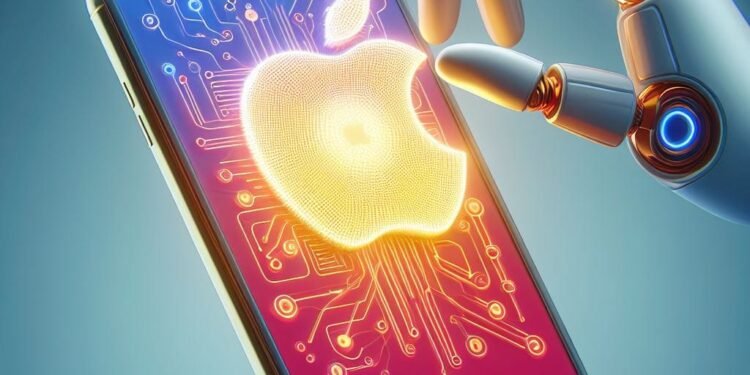In the latest tech news, respected analyst Mark Gurman has unveiled that Apple is silently forging ahead with on-device Language Model Learning (LLM) technology, aiming to bring generative AI capabilities to its vast ecosystem without relying on the cloud.
For tech enthusiasts, developers, and the wider industry, this revelation hints at a seismic shift in the capabilities of Apple devices, potential privacy enhancements, and a fascinating new chapter in the AI arms race among tech giants.
Understanding On-Device LLM Technology
Experience the future of AI with Apple’s revolutionary large language model (LLM). Developed entirely in-house, this cutting-edge technology is engineered to run on-device, offering unrivalled speed and absolute privacy. Stay ahead, stay private with Apple’s LLM. As reported by Bloomberg’s Mark Gurman, shift to a smoother, faster, and more confidential user experience.
The Role of On-Device LLM in AI and Machine Learning
On-Device LLM represents a groundbreaking move towards decentralizing AI capabilities. It forgoes the traditional cloud-based model to allow devices to efficiently learn and predict human language and behavior without constant internet connection. This has profound implications for enhancing user experiences while maintaining a stronger grip on privacy.
Implications for Privacy and Device Performance
With Apple’s focus on privacy, LLM could allow users to enjoy the perks of advanced AI features without the fear of data breaches or surveillance. Furthermore, local processing promises to reduce latency and dependence on external servers, leading to faster and more reliable device performance.
Apple’s Approach and Innovations
Apple’s Uncharacteristically Open Stance on AI Development
While typically secretive about its technological advancements, Apple’s foray into on-device LLM suggests a more transparent approach. Gurman’s report implies that this could be part of Apple’s larger strategy to be the trailblazer in bringing AI directly to consumer devices.
Potential Impact on Future Apple Devices and Software
If integrated successfully, On-Device LLM could redefine the boundaries of what Apple devices and software are capable of achieving. We can expect new features that were previously deemed either too intensive or too invasive for an on-device model.
The Future of Generative AI Features
Broader Implications for AI in Consumer Devices and Services
Apple’s shift towards on-device generative AI points to a larger industry trend — the need for AI personalization and privacy to go hand in hand. With increased scrutiny on data practices, the development of such features marks a turning point for AI technology.
Speculation on Potential Use Cases and User Experience
The possibilities are vast. From more context-aware Siri interactions to improved photo and video editing recommendations, the integration of On-Device LLM could fundamentally change the way users interact with their Apple devices, making them more intuitive and personal.
Analysis of Industry Reactions and Impacts
Initial Responses from Technology Experts
Experts have responded with a mix of excitement and skepticism. While the potential for enhanced user experiences is clear, questions remain about the technical feasibility, and the impact on battery life and device temperature.
Competitive Implications and How Apple’s Move May Affect Rivals
Apple’s direct integration of LLM technology brings a unique advantage that could set it apart from competitors relying on cloud-based AI. This development could pressure other companies to rethink their AI strategies and push for similar on-device capabilities.
Conclusion: Looking Ahead
In conclusion, if Apple’s foray into On-Device LLM is as successful as anticipated, we could be on the cusp of a new era for personal technology. The confluence of privacy, performance, and personalization may well become Apple’s new hallmark in a competitive landscape that’s never been more primed for innovation.
The coming months will be a litmus test not just for Apple’s innovative capabilities, but also for the wider adoption of AI in consumer technology. Whether or not Apple’s approach will lead to a sizable advantage, it’s evident that the company’s relentless pursuit of AI personalization has captured the imagination of tech enthusiasts worldwide.












